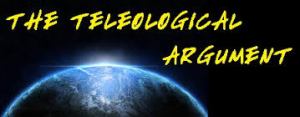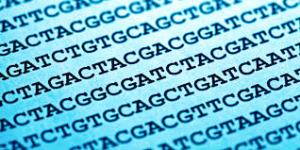In the beginning God created the heavens and the earth…God saw all that he had made, and behold, it was very good. Genesis 1:1, 31a
When I began to seriously study the Bible I found that Genesis quickly became my favorite book. As a science teacher I knew that this is where the battle would be for the minds of our kids, and this is where I found truth confronting deception. Understanding Genesis would quickly become the one thing that helped solidify my belief and trust in God as the Creator.
After studying Genesis more times than I can count, I have found these particular focus points of utmost importance:
- The Scarlet Thread of Jesus: He was there in the beginning (John 1:1-2; Colossians 1:16-17) and then all through Genesis and the rest of the Old Testament you can find God giving us a picture of Jesus through events, people and His promises called covenants.
- The Genesis Promise as it unfolds: The first Promise, found in Genesis 3:15 after the Fall, is slowly unveiled starting with a Covenant given to Abraham and then passed down to his son Isaac, and grandson Jacob who God renamed Israel. Israel had twelve sons who would become the Nation of Israel.
- The importance of the Nation of Israel: This Nation was chosen by God’s for the purpose of carrying the Promise that included a blessing for all the nations to be fulfilled in the person of Jesus. Their story carries throughout the whole of the Old Testament as they experience times of greatness and times of great tragedy, and they are to play an important role for God in our future as well.
- Obedience vs. disobedience: As representatives of God the Nation of Israel’s obedience would result in God’s protection and prosperity; disobedience would result in the loss of that protection and ultimately in their captivity and exile from the Promised Land.
- God’s Hesed: Regardless of the peoples’ actions, they experienced God’s unconditional grace and love that passes all human understanding. This is available today for all who are willing to receive it through Jesus who is the one that fulfilled that Promise from God in Genesis.
- Satan’s Attempt to Crush the righteous seed: God promised that the seed of the woman (Eve) would crush the serpent’s head (Satan). After the Fall and beginning with the murder of Abel, Satan’s goal would be to stop the righteous seed. This continued with the increasing violence in Genesis and ultimately a worldwide catastrophic event. Jesus’ tells us in Matthew 24:37 that upon His return it will be like it was in the days of Noah. Today Satan knows his time is limited and his deceptions continue.
- God’s perfect character: God is all-powerful, all-knowing, all-loving, and everywhere present. He is patient, righteous and just, faithful to His Promise and Word, merciful, and full of grace. He is the way, the truth and the life eternal. All of God’s characteristics are ultimately revealed in the person of Jesus:
- He existed before the beginning of time (Col. 1:17)
- He existed at the beginning of time (John 1:1-2)
- He is present everywhere in the universe and is not constrained by space-time (Proverbs 15:3; Jeremiah 23:24)
- He is the Creator of all things (Genesis 1:1-2; John 1:1-3; Colossians 1:16)
- He is eternal and unchangeable (Psalm 9:7; 1 Timothy 1:17; Malachi 3:6; Hebrews 13:8)
- He is the sustainer of everything (Colossians 1:17; Hebrews 1:3)
- His wisdom is without limit and His understanding is complete (Psalm 147:5; 1 John 3:20)
- He knows the beginning from the end (Isaiah 42:9)
Watch this spectacular 40 minutes presentation by Louie Giglio called “How Great is Our God”
When studying any book of the Bible it is important to know some of the hermeneutics:
The author of Genesis is Moses: There are many who attempt to discredit Moses’ authorship, but there are many places in Scripture that confirm Moses’ authorship:
- Then the LORD said to Moses, “Write this for a memorial in the book and recount it in the hearing of Joshua…Exodus 17:14
- And Moses wrote all the words of the LORD. Exodus 24:4
- Also refer to the authorship of Moses’ writings in Numbers 33:1-2; Deuteronomy 31:9; Joshua 1:8; and 2 Kings 21:8.
- Most importantly, Jesus spoke about Moses’ authorship! (See John 5:31-47)
The audience Moses wrote to was the Nation of Israel during the wanderings in the wilderness somewhere between 1446-1406 B.C. The genre of Genesis is classified as an historical narrative so we can clearly see the purpose for the writing was as follows:
- A testament for the people to forever remember their history, know the greatness of their God, and understand that the promise He made was unfolding through the Covenant they were to live out.
- A testament to understand that they were God’s chosen representatives and that His Promise through the Covenant was to be passed specifically through them.
- The people would also know, through the Covenants, that obedience would equal protection and blessing and disobedience would result in the removal of that protection and blessing. The result of that is seen throughout the whole of the Old Testament.
- Because Israel was God’s chosen family that the Messiah would come through they must be seen as set-apart/holy, and thus God set their standards high above the other nations.
I use to think that Christians acted “holier than thou” in their attitudes (and many wrongly do) but what I didn’t realize, now that I am a Christian, is that is exactly how we are suppose to behave as role models for Christ! Holy does not mean an attitude of being better than someone else, it is a lifestyle of being on God’s Team, representing Him; it means putting God and others first and ourselves last in all that we do.
GENESIS 1:1
In the beginning God…
The Bible never argues God, it assumes God:
- Although everything had a beginning (cause and effect) God has always been.
- There must be a first uncaused cause to get things started, otherwise we would never be able to get to today.
- Without an uncaused first cause there would be an infinite regress of “who made that, and who made that, then who made that…”
- You could never get anything started without a starter, therefore it makes sense that the Creator of a thing does not fall under the rules of the thing created (like a builder and the building, or a computer designer and their computer).
- God is outside our created space-time continuum.
Herbert Spencer, Science Philosopher: “The ingredients we find in the makeup of our universe are time, force, energy, space, and matter.”
Genesis tells us that from the beginning: In the beginning God created the heavens and the earth.
In the beginning = time
God = force
Created = energy
The heavens = space
and the earth = matter
For those who need more concrete evidence, like I did, here are some arguments for God’s existence that cannot be disputed. Keep in mind that when premises are used we must provide evidence in #2 for #3 to be true. All of these have multiple lines of evidence in the second premise that are covered in other posts I have done (go to the categories for the “existence of God” here on this site).
- Cosmological Argument:
Premise #1: Whatever begins to exist must have a cause. All effects must have a cause
Premise #2: The Universe began to exist: All that we see in the Universe had a beginning as evidenced by the effects known as the big bang, red shift, background noise and radiation.
Premise #3: Therefore, the Universe has a cause. An effect implies a cause therefore there must be a Causer.
- Teleological Argument: (anthropic principle)
Premise #1: Whatever has the appearance of design must have a designer–A building must have a builder; a painting or sculpture must have an artist; and a computer must have a programmer.
Premise #2: The universe has the appearance of design: Mathematics, engineering, physics and the fine-tuning of our Universe are all elements with evidence of design that supports life uniquely here on Earth, and we are capable of discovering it!
Premise #3: Therefore, the Universe has a designer.
- Teleological Argument: (biochemistry principle)
Premise #1: Machines and information can only come into existence from the will and design of an intelligent being, and intelligence implies a mind.
Premise #2: Our bodies have the appearance of design: Our cells have a design code (DNA) with information that directs each system and its individual microscopic parts with extreme precision. Billions of irreducibly complex machine-like structures are coded with information that work for a specific purposes in our bodies.
Premise #3: Therefore, there must be an intelligent designer and code maker responsible for the construction of our bodies.
- Moral Argument:
Premise #1: A law must have a lawgiver.
Premise #2: There is a universal moral law evident in the universal behavior and expectations of all humans everywhere.
Premise #3: Therefore there must be a universal moral lawgiver.
In the beginning God…
- God = The Hebrew word used here is the noun Elohim, which is plural (three or more).
- The verb (action) Elohim is singular. This is the normal usage when referenced in the Old Testament for the one true God.
- Elohim shows us the Trinity working together from the very beginning and the active participation of Father, Son and Holy Spirit in creation, from the beginning.
- LORD God
- LORD=YHWH (I AM)
The concept of the Trinity is one that is taught in God’s Word, but it is beyond human comprehension. God is one being in three persons. The Trinity shows us the importance of relationship. God had relationship before He created and God wants relationship with us as evidenced in the Garden of Eden.
There are so many ways people try to explain the Trinity, all of which are inadequate, and rightly so because as our Creator God He should be beyond our ability to completely understand. Nabeel Qureshi came to that a-ha moment concerning the Trinity when he was in his college chemistry class and came across resonance molecules. These molecules are capable of being one molecule and three different at the same time.
Read Nabeel’s book Seeking Allah, Finding Jesus for a complete story of someone coming from the deception of Islam to the truth Christianity.
Watch this 56 minute presentation by one of the greatest Christian Apologists of our time, William Lane Craig on the Existence of God:
Other great resources on the existence of God:
- The Case for A Creator, by Lee Strobel (DVD, book, study guides, website: Leestrobel.com)
- On-Guard, by William Lane Craig (book, study guide, website: reasonablefaith.org)
- God’s Crime Scene, by J. Warner Wallace (book, website: coldcasechristianity.com)
Join us next week as we continue our investigation of Genesis and the existence of God.
You will not find this material in the public school curriculum even though it is based on solid evidence and grounded in research. It is ironic that following the evidence to where it leads stops at the door of our public schools as they will not let a “Divine footprint” in! Join us this year as we examine evidence for Christianity and learn how to become a thoughtful defender and ambassador of your faith.
Click into the resource page of this website to view many of the top Christian thinkers and apologists along with some of their work; connecting to these types of resources is essential in your Christian growth.
Please let me know what you think: Give feedback, ask questions or send concerns in the comment section of the blog.
Teri Dugan
TeriDugan@truthfaithandreason.com











Sorry, comments are closed for this post.